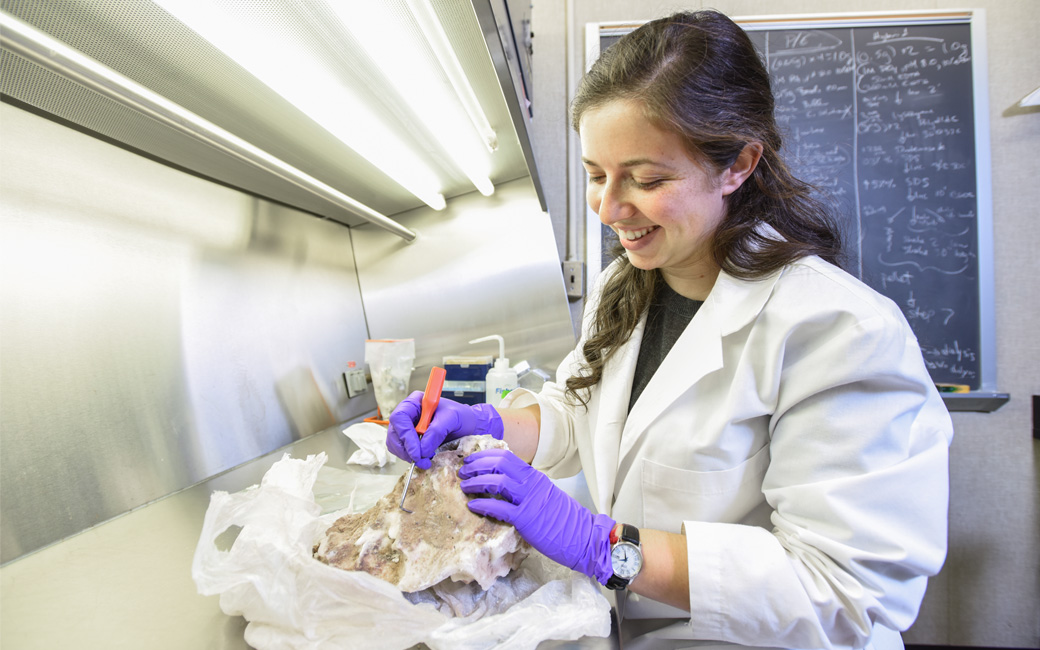Neta Shwartz
As a doctoral student in the biology department at Johns Hopkins University, Neta Shwartz ’16 is preparing to unravel some of the world’s most important biological mysteries.

From research on the effects of aging on muscle degradation to the impact of weather on the growth of bacteria, Shwartz says, “This is the time to explore areas that I might never have imagined before deciding where to focus my own research.” Shwartz studied molecular biology, biochemistry and bioinformatics (MB3) at TU, and graduated in 2016.
“ To be an undergraduate and to do research that could end up developing therapies to help people is amazing. ”
Her love of research was fostered as an undergraduate at TU, where she forged faculty connections to pursue Research Experiences for Undergraduates at both Hopkins and Cornell University. Her contributions to the study of protein-to-protein interactions at Cornell led to co-authorship of a paper in PLoS Genetics and later work on muscle development resulted in several presentations at scientific conferences.
“To be an undergraduate and to do research that could end up developing therapies to help people is amazing,” says Shwartz.
Still, her big interest remains in the field of bioinformatics. “It is the perfect data collection and analytical tool and can be shared by all biology fields,” says Shwartz, who attended a magnet high school in Baltimore and studied visual arts/photography and multimedia. “There are many similarities between science and art. Both require you to be methodological, both require critical thinking and both require a certain amount of creativity to approach and solve problems,” explains Shwartz.
At TU, Shwartz transferred into the Honors College in her sophomore year and served as one of the college’s student directors. “It was a way to forge connections and apply leadership skills by organizing co-curricular activities and launching a successful outreach effort to commuter students,” says Shwartz.
Among the most important skills she developed at Towson University: the ability to communicate. “Younger students should recognize that one of the most important aspects of research and exploration is the ability to communicate your work.”